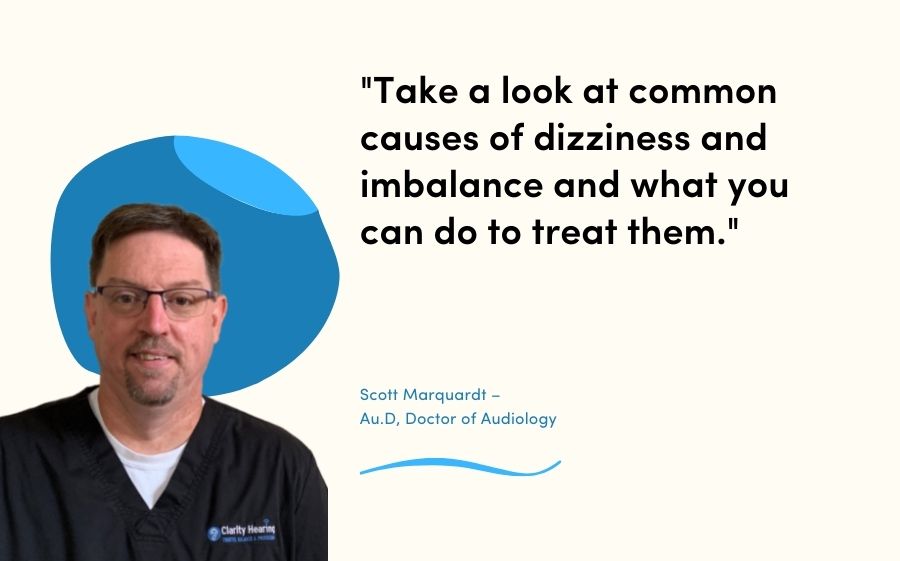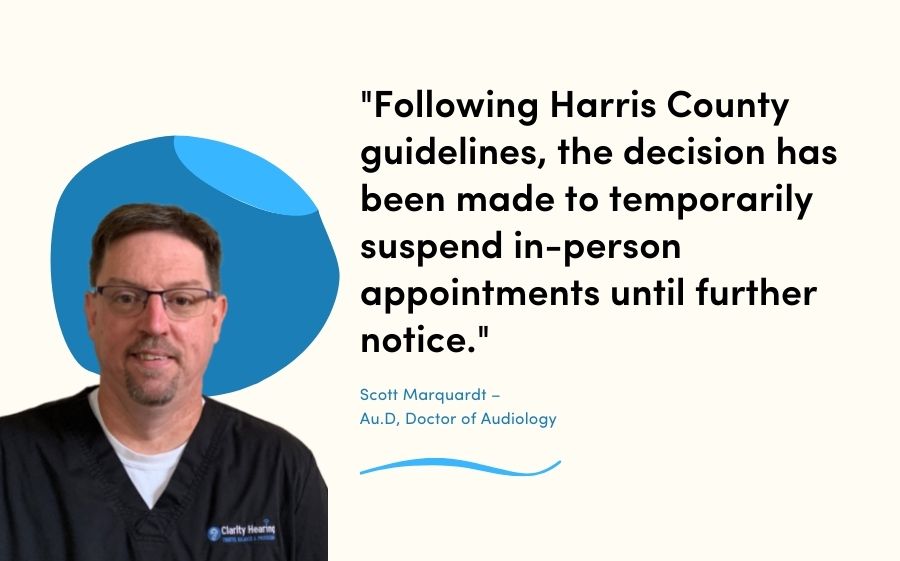If the room is spinning and you didn’t just step off of a carnival ride, you’re likely quite concerned! Dizziness and imbalance are troubling symptoms that range from uncomfortable to disabling.
We all experience brief periods of dizziness at times, triggered by illness, dehydration, or simply standing up too quickly. But intermittent or ongoing dizziness is a sign that something is amiss. Frightening symptoms like vertigo can be a threat to your independence and make you wary of leaving the house.
What many people don’t know is that balance is tied closely to the workings of the inner ear. Our team of experienced audiologists can help you determine the cause of your imbalance and offer simple solutions to alleviate the discomfort. Take a look at common causes of dizziness and imbalance and what you can do to treat them.
How Your Ears Affect Balance
Your equilibrium is kept in check by a combination of sight, sound, and somatosensory perception. When all three are working together, your central nervous system maintains your center of gravity with help from your cerebellum. Your ears are part of your vestibular system, which includes joints, ears, eyes, and muscles. So, it makes sense that when one part of the system isn’t working correctly, other functions suffer as well.
Your inner ear, in particular, plays a leading role in maintaining balance. Three canals in your ear dictate equilibrium by sensing side-to-side, up-and-down, and tilting movements. Your inner ear is responsible for letting your brain know when that motion is out of sync via the movement of tiny hair cells and fluid in your ears. Balance issues can have many implications, including hearing loss.
Causes of Dizziness and Imbalance
Imbalance and dizziness are similar, but there are distinctions too. Dizziness often causes the sensation of lightheadedness or faintness. Whereas imbalance feels more like unsteadiness or a lack of center of gravity. Vertigo is identified by the uncomfortable feeling of spinning and an illusion of perceived movement. No matter which way you’re feeling, you know one thing- you want it to stop! The good news is these sensations have causes which your audiologist can help identify with simple, non-invasive tests.
Diseases That Cause Dizziness:
Otologic and ocular diseases, as well as cardiovascular, orthopedic, endocrinological, and neurological problems, can all have an impact on balance. Frustratingly, so can the medications used to treat some of these conditions. Here are some of the most common culprits.
Medications That Cause Dizziness:
Unfortunately, medicines to treat specific ailments can also cause dizziness or vertigo. The good news is, there are often alternatives to these drugs, so talk to your doctor if you develop dizziness after starting a new medicine. Some medications to pay attention to are: anticonvulsants, antidepressants, blood pressure drugs, muscle relaxants, nitroglycerin, pain relievers, and sleeping pills. Often times, dizziness is short-lived as you adjust to the medicine, but if symptoms persist, you may benefit from lifestyle changes or alternate medications.
Conditions That Cause Vertigo:
Vertigo can make you feel like your body is losing control, but take comfort, there are solutions for your symptoms. More than 90 million Americans deal with vertigo, but you don’t have to be stuck spinning in discomfort. Vertigo can cause everything from a spinning sensation, to light-headedness, to nausea and vomiting, to motion sickness or headaches.
Additional risks with vertigo are balance-related falls and injuries sustained in the fall. Balance-related falls are implicated in over 50% of accidental deaths in older people. Take a look at some causes of vertigo to help eliminate your risk.
How to Treat Dizziness and Imbalance
Your body is a complex structure comprised of intricate systems working together for equilibrium. The vestibular system is one we often take for granted until we find ourselves out of balance. Many things contribute to dizziness or imbalance, and fortunately, ways to address them. Our team of professional hearing specialists can perform easy tests to diagnose the cause accurately. Whether you need a hearing device or medical consultation, we’ll help you determine how to eliminate your symptoms.
The relationship between balance and hearing is substantial, so if you experience symptoms of dizziness or hearing loss, seek the advice of a Doctor of Audiology. Your ears are the window into what could be out of sync in your body. At Clarity Hearing, we help you find the root of your balance issues and prevent unnecessary hearing loss. Contact us today to see how we can help!




